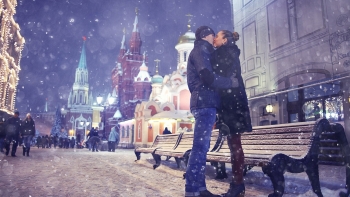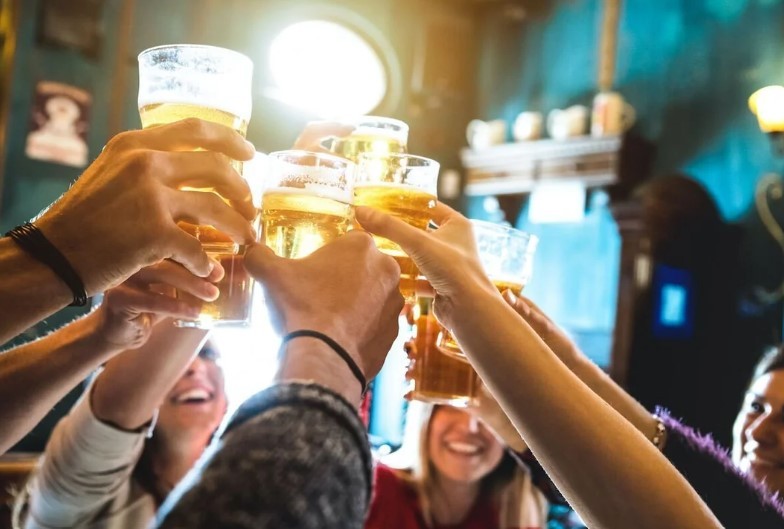Toasting Drink Traditions Around the World: Origin, Unique Rituals
 How to Say Cheers in 50 Different Languages (Toasting Drinks) How to Say Cheers in 50 Different Languages (Toasting Drinks) |
In order to ensure that you are well-prepared whenever you are pouring yourself a glass, KnowInsiders examine the most distinctive toasting traditions that are practiced in different parts of the world.
 |
| The Origin of Toasting Drinks |
History of Toasting Drinks
Toasting has seen ups and downs over the ages. At every meal, the early Romans were required to toast to the Emperor Augustus, and the Vikings honored their companions by raising cups or the skulls of their enemies. At Australian public banquets, more than 20 toasts were frequently made as recently as the Victorian era; one temperance advocate referred to this practice as "barbarous, effete, and out of place."
In the Middle Ages, it was customary to enhance the flavor of wine by submerging an actual piece of charred or spiced toast in it. A brave boy was seen raising the cup to a woman and making a toast.
Where Do Toasting Drinks Come From?
The ancient Israelites, Persians, Egyptians, Greeks, Romans, Saxons, and even the Huns (attila apparently enjoyed it). "Although toasting had been practiced for centuries, the term 'toasting' did not emerge until the seventeenth century, when it became common practice to garnish drinks with a crouton or piece of toast."
There might be a few different places this particular practice of tapping glasses together came from. According to Dickson, some people felt that the bell-like sound they made warded off evil spirits, while others believed that the sound of clinking cups or splashing liquid between two containers proved that one wasn't attempting to poison the other. But the truth is that the exact origin of toasting drinks is a mystery to everyone.
No matter where it comes from, toasting is a part of human life that everyone loves and cherishes. Many celebrations call for toasts, including weddings, funerals, birthdays, feasts, holidays, and more. Let us toast these global traditions with a glass of something nice, and remember the words of the song: "We'll take a cup of kindness yet, for the sake of Auld Lang Syne."
Toasting Traditions in the World
Various cultures continue to practice a variety of rituals that are associated with the toast. This can be offensive if it is not done correctly. What is the best way to drink from the glass? Would you like to clink? It is possible that you do not have any plans to travel internationally in the near future; however, in our multiethnic society, it is still beneficial to have some social skills.
Australia
When Australians go out drinking, they usually say "cheers" and split the tab for multiple rounds of drinks. In Australia, a toast is always welcome, but especially when the clock strikes midnight on New Year's Eve.
Canada
It is traditional in Canada to raise a glass and say "cheers," wishing each other health and happiness as we clink our glasses and look each other in the eyes. Indulging in a toast also piques our curiosity. When people drink something, they can see, touch, taste, and smell it. As we raise our glasses in toast, the sound of clinking brings the whole experience to a delightful close.
China
The host is always the one to raise their glass first, exclaiming "Gān bēi!" (bottoms up). Hold your glass lower than your guests' and elders' to demonstrate respect, and clink it on the belly rather than the rim. To make subsequent toasts, simply tap the base of your glass against the table.
France
When pronouncing santé (son-tay), the word for "health," it is crucial to maintain eye contact. As you raise your glass to toast with everyone in the group, keep your arms crossed. They say that if you do, you'll have to deal with terrible sex for the next seven years.
Hawaii
"I ke ola," meaning "here's to life," is a popular Hawaiian toast.Properly raise your cocktail glass, make eye contact with your toast partner, say their name, and then repeat the Hawaiian 'i ke ola. To further evoke sentiments of goodness or excellence, you can add the words "maikai" or "pono" to the conclusion of the blessing. The terms "maikai" (meaning "goodness and praise") and "pono" (meaning "righteousness") are not easily translated into English.
Awa, also known as kava, is a ceremonial drink made from roots that Cook suggests you try while you're in Hawaii.
 Top 15 Breathtaking Vacations in the US You Must Visit at Least Once Top 15 Breathtaking Vacations in the US You Must Visit at Least Once |
Germany
The exacting Germans have distinct terms for raising a glass of wine or beer. It's too weak for wine and too strong for beer. By "to your good health," they are both intended. Be sure to look everyone in the eye while you clink your glasses with them.
Greece
With the custom of pouring a libation to the gods, some people believe that the ancient Greeks were the ones who invented toasting. In modern times, it is customary to utter a hearty yamas whenever you raise your glass of wine or ouzo.
Ireland
Famous people from William Thackeray to the Rolling Stones have enjoyed Dublin's elegant hospitality and friendly bars at the Shelbourne Hotel, which has been around for nearly 200 years. A toast can be a meaningful way to start a celebration or pay tribute to someone you've lost. This is a quiet way to send your best wishes for the well-being of your loved ones, which is something I think is very meaningful in light of the past two years.
Murphy is eagerly anticipating his own glass of the finest Irish whiskey or beer, as the Irish are renowned for enjoying them.
Italy
It's not important to the Italians to make eye contact or clinch their glasses. Just raise your glass and say "cin cin" (chin chin) if you want to be casual. You can say salute (sa-loo-tay) or a la nostra if you want to be a little more formal.
Japan
Cook writes in his global guide that there is a proper way to toast in Japan. The host in Japan pours a guest a small glass of beer before he pours himself one. As a guest, they should hold their glass with one hand and put their other hand under it, palm down.
As a sign of respect, the host lowers his glass below the level of the guest's glass. The guest should then do the same. As part of the ritual, glasses are clinked and the phrase "kan pai," which means "dry glass," is said. This is meant to encourage a strong chug.
A Japanese beer is always a good choice, but you might also want to try a Japanese whiskey or sake.
Nigeria
In Nigeria, you might raise a glass of palm wine and say a toast that is also a blessing in the Igbo language. "Thanksgiving" is what "Ekele diri" means. Some hosts offer special toasts with hot drinks that are ceremoniously poured onto the ground in small drips to honor "odinamma," which means "peace," "onu," which means "happiness," "oganihu," which means "success," or "ihunaya," which means "love."
People in this area like to toast, sip, and celebrate with palm wine, which is made from the sap of palm trees.
Norway
The word "skāl," which means "bowl" in Old Norse, comes from the practice of drinking ale or mead from the skull of a defeated enemy by warriors. The skull part stopped in the 1100s, but the word "skål" is still used today as a toast. You might not be able to drink from a skull anymore, but you can still celebrate with a glass of Nordic wine, aquavit, or another Nordic spirit.
Peru
Important moments are greatly anticipated by the Peruvians. Holidays, company closures, and birthdays are just a few examples. The Spanish phrase "para tu salud" literally translates to "for your health," and the word "salud" is basically just a contraction of that phrase. Sparkling wines, such as Champagne or Pisco Sours, are standard fare for them.
Poland
As the meal progresses, toasting is a common practice in Poland. The hostess stands up, puts up a glass, and says "Na zdrowia" to start. Then, the guests join in. After each toast, you are expected to down your small glass of vodka in one gulp, according to tradition. This ritual can be quite challenging because there can be many.
Russia
In Russia, it is customary to raise a glass before each round of drinks, and the sequence is significant. The toasts begin with one to the honored guest, then one to the host's parents, and finally one to express gratitude to the host. Countless others followed. Rostovje is the most basic Russian toast, meaning "to health." However, Russian toasts can get pretty creative.
 Guide to Say 'I LOVE YOU' in Russian with Romantic Style Guide to Say 'I LOVE YOU' in Russian with Romantic Style |
Scotland
Slàinte mhath, pronounced (for some reason) Slanj-a-va, is the traditional Scottish toast. “Just slàinte” is your response. "Lang may yer lum reek," which translates to "long may your chimney smoke," is a more intimate way to wish a warm and comforting house to the homeowners.
Spain
Whatever you do, don’t toast with water, unless you want to risk seven years of bad luck in the bedroom. The typical toast in Spain is Salud, but in Catalonia men might toast each other with the more risqué Salud i forca al canut meaning “health and strength to your ‘pipe’”.
Turkey
"Sharafan" means "honor" in Arabic, which is where the Turkish toast "şerefe" originates, as stated by Cook. Indulge in raki, an anise-flavored traditional spirit blended with water, or a glass of Turkish wine as you partake in the ritual toasting.
Ukraine
Ukrainians typically suggest toasts in a specific order. New acquaintances are the focus of the first toast, while women (or love) are the object of the second and third toasts, respectively. The toastmaster is required to stand, lift a glass, and offer a short story about the honoree to explain why they are paying homage to them.
It is not necessary to clink glasses. "Budmo," which means "we will" and is a diminutive of the eloquent "we will live forever," is another traditional Ukrainian toast that Cook suggests.
Nalyvka, a fruit-based liqueur, is a popular choice for celebrations among Ukrainians, even though vodka is commonly associated with this region.
 50+ Weirdest & Little-Known Facts About Ukraine 50+ Weirdest & Little-Known Facts About Ukraine Discover the weirdest and most interesting things about Ukraine that is being torn apart by the Russian attack. |
























